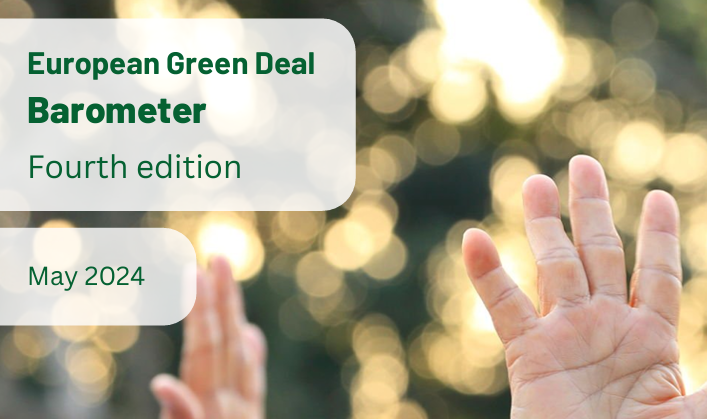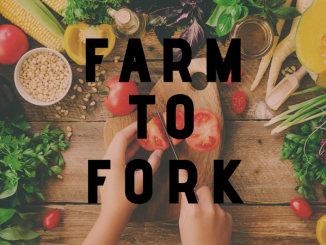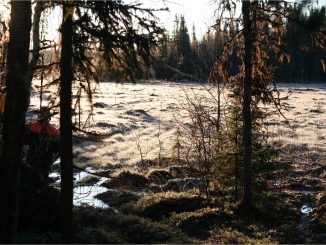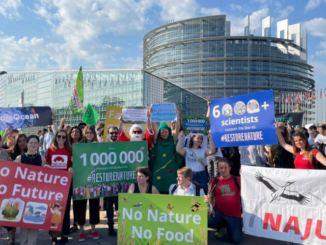The good news is that experts think the Green Deal will live on (in some shape or form). The bad news is that they paint a pretty bleak picture when it comes to the legacy of the past 5-year term on the food and farming sector. And while things are fine at the top level, down in the details is where the trouble emerges. ARC2020 digs into the latest Green Deal barometer to see what Europe’s sustainability experts made of the past political cycle – and what they see is next for the EU’s green ambitions.
The annual barometer, put together by green thinktank IEEP, analyses the progress (or lack thereof) of the European Green Deal files and policies based on a survey of over 300 environmental and sustainability experts in the European Union and beyond.
As the fourth round of the expert temperature-check, published on Tuesday (21 May), comes as the five-year political cycle comes to a close, it also offers a good vantage point to assess where we’re at, and to glimpse into the possible future course of the Green Deal.
A Green(ish) Deal
So what did it find? Well, let’s start with the good news first, as there’s been more than enough bad news recently.
A majority of sustainability experts believe that the European Green Deal will continue on in some shape or form, with just over half of those surveyed expecting at least “moderate” resilience following the 2024 European elections.
Meanwhile, the barometer also notes that “hundreds of laws” were finalised over the past term, with “significant” progress was made in some areas, such as in the energy and transport sectors.
All in all, more than half of EU experts (55%) remain confident that the EU institutions will turn the Green Deal agenda into approved legislation, the effects of which will be seen and felt in the coming years, while almost all experts living outside the EU agreed that the implemented Green Deal will have an “impact on a global scale”.
So the top level is fine, but now for the no-so-good news. Down in the details, problems start to emerge.
While most experts do think the Green Deal will live on, the majority believe it will likely do so in a “weakened or more constrained” form, with 62% warning the green agenda might narrow or weaken after the 2024 elections.
And when it comes to food and farming, the barometer paints a bleak picture of policy progress over the past five years: three-quarters of those with expertise in the area identified progress as poor.
Pointing to a number of important pieces of legislation that were abandoned, including the sustainable food systems law and a full animal welfare package, experts placed progress in this area at the bottom of the pile (see chart below)
So what’s holding things up?
According to the experts surveyed, the main blocking factor in turning green ambitions into approved legislation is insufficient commitment by member states governments, with six in ten (62%) selecting this option. This has been found to be a longstanding concern among experts, with this also coming out on top in editions of the Green Deal Barometer.
When asked which three Member States are the most committed to the Green Deal, the largest proportion of EU experts choose Denmark. On the other hand, the country that experts consider to be least committed to the EGD is Hungary (62%) – who will take the reins of the rotating EU presidency in July.
Meanwhile, in the barometer’s foreword, IEEP Executive Director Eero Yrjö-Koskinen, notes that what started as a “German precedent” – referring to the last minute politicking around the proposed EU ban on the sales of new combustion engine cars – is now becoming a worrying new “norm” in the EU Council.
Case and point is the Nature Restoration Law, which was blocked at the very last minute by member states, despite the fact it had gone through intense rounds of technical negotiations ,the Council had an adopted position, and the final shape of the law won the greenlight from the Parliament (more on that at the link below).
This has created “increasing uncertainty throughout the entire EU decision-making process, which has now become ever more susceptible to external pressures,” including “populist movements and private sector interests,” he wrote.
EU’s Nature Restoration Law at Critical Juncture after Pushback by Member States
EU elections
Meanwhile, almost seven in ten (67%) EU experts expect June’s elections to have a negative impact on the implementation of the European Green Deal, while one in five (20%) expect these to have a very negative impact. This comes as polls suggest Parliament will see a significant shift to the right.
That being said, only three in ten (27%) of experts see the upcoming elections as one of the biggest barriers to Green Deal implementation, with experts on the whole seeing member state government-level issues or inflation as bigger blocks to progress.
So, while the expected impact of the EU elections is “far from ideal”, the barometer notes that experts “do not appear to be treating them as a crisis equal to recent economic disruption”.
Way forward?
According to experts, going forward, the focus should shift from action at the EU level, to putting eyes on effective implementation at national and local levels of the “significant” number of pieces of legislation produced and approved by EU legislators over the past few years.
Meanwhile, on the main priorities for the next Commission, two clear themes came out on top: four in ten (40%) believe the Commission should adopt more measures to ensure a socially just transition, while about one third (30%) selected ‘a fair and sustainable food and farming system’.
According to EU experts familiar with this policy area, efforts should focus on increasing financial support for farmers to transition towards sustainable agricultural practices, with 59% of respondents putting this as one of the most necessary measures to achieve a more environmental and climate-friendly EU agriculture policy.
Experts also called for more in-depth reforms in areas overlooked so far, particularly in relation to the areas of food, biodiversity and in ensuring a just transition.
To learn more, you can find this year’s Green Barometer: European-Green-Deal-Barometer-2024-4th-edition
More
Brussels Round up – Mirror Clauses, Mixed Messages & Farm to Facts
Survey Shows Huge Support for Nature Restoration Law in Blocking Member States
What the EU farmers survey tells us – and doesn’t tell us – about CAP burden
Green Light Now, Green Fight Later – CAP Fast Track Risks Legal Wrangle
EU’s Nature Restoration Law at Critical Juncture after Pushback by Member States







